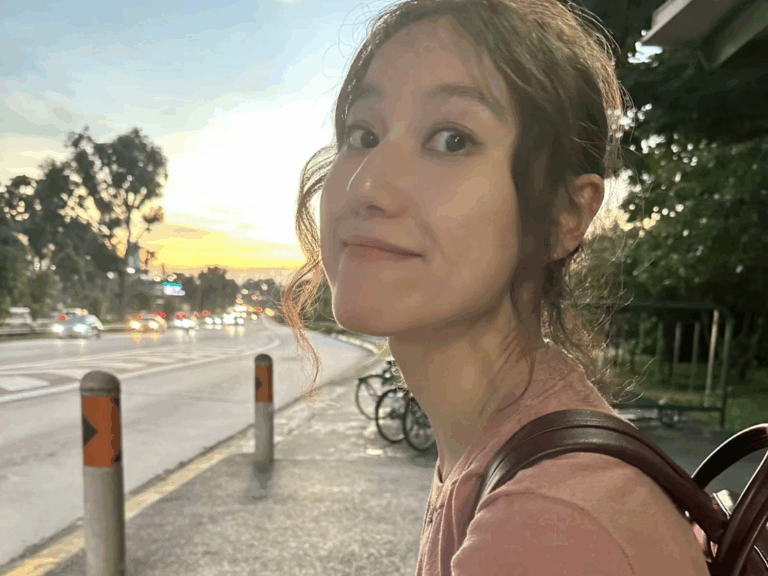
In China — now the world’s second most populous country after India — a quiet contradiction is unfolding.
There are millions more men than women — 34.9 million more according to Seventh National Population Census conducted in 2020, a legacy of China’s decades-old “one child” policy that collided with deep-rooted rural preferences for sons. Some families even turned to aborting or abandoning female babies or worse to ensure a male heir.
Today, birth rates are plunging. High living costs, career discrimination, and gender inequality make it tough for women to thrive. In the workplace, planning a wedding or having children can lead to women losing their jobs. Even pregnancy, supposedly protected by law, often puts careers at risk.
Meanwhile, cultural expectations still prevail: marry “well,” settle down “on time,” and always prioritise family.
While many follow that path, Ni Anni, a PhD in Sociology and Anthropology candidate at the National University of Singapore, is tracking a growing number of women who quietly choose something different: a life abroad.

Before pursuing her PhD in Sociology and Anthropology, Shanghai-born Ni Anni earned a Master’s in Gender Studies at the London School of Economics. Source: Ni Anni
Why single Chinese women are seeking freedom abroad
Since 2009, women have outnumbered men in Chinese universities. Many are now more educated than their male peers, but that hasn’t translated to equality. In fact, the more degrees they earn, the fewer job offers they seem to get.
Around 61% of Chinese women report being asked about marriage or children during job interviews — a clear sign of deep-rooted bias.
“If you look at the gender inequality index, China ranks 103, not exactly progressive,” Anni says. “But the university enrollment for women is huge. That contradiction fascinated me. While most research focuses on married women, I wanted to know, what’s happening to the single ones?”
Her PhD in Sociology and Anthropology asks these questions: Can Chinese women build better single lives abroad? And if so, can they become role models for gender equality and empowerment?
What she’s found so far is striking.
“These women can actually imagine staying single long-term, building lives based on personal choice,” Anni explains. “Meanwhile, many Chinese men become anxious about being single by 30. They often move back home to find a partner, sometimes even abroad in developing countries.”
But unlike women, single men face no judgment. Women who return home unmarried? They risk being labelled shèngnǚi.e. “leftover women.”
Outside China, that label disappears — and with it, the stigma.
“Liberation is what these women often feel,” Anni says. “In Singapore, for example, they feel more secure, more accepted. They connect with other women who’ve made similar choices, and they feel free from the pressure to conform.”
Her research doesn’t show that these single Chinese women are against marriage. “They just want to live well, and if marriage happens, it has to feel safe, equal, and fulfilling,” she says.

PhD in Sociology and Anthropology candiate Ni Anni and her cohort on a night out in Singapore. Source: Ni Anni
Anni is careful not to oversimplify.
“At first, yes, they leave to get away from societal pressure,” she shares. “But over time, the reasons change. It becomes about self-growth, stability, and even making their families proud from afar.”
Some women even migrate to improve relationships back home, putting a healthy distance between them and the weight of expectation.
“The women I’ve interviewed came to Singapore to ease the pressure on their families, not to reject them,” Anni explains. “They’re raising the value of femininity on their own terms.”

Ni Anni presenting her findings of her study, “Gendered individualisation among never-married Chinese skilled-labour women in Singapore,” as part of hr PhD in Sociology and Anthropology. Source: Ni Anni
The road to getting a PhD in Sociology and Anthropology
Born and raised in Shanghai, China, Anni herself faced her own set of limitations — she didn’t exactly have a choice when it came to choosing her degree.
“Our choice of majors isn’t based on our personal interest but rather our grades,” she shares. “That’s how I got into economics and sociology, and I wasn’t even sure what sociology was then.”
Anni earned her Bachelor’s in Economic Sociology at the Chinese University of Finance and Economics. This was where she first learned about gender, power, and poverty. She enjoyed it, so much so that she wanted to learn more about it by going abroad.
Her family wasn’t too keen about her leaving but Anni knew that it was a way to open her eyes to what’s happening outside of China.
So she made her way to the UK to pursue a master’s degree in Gender Studies at the London School of Economics and Political Science (LSE), ranked #1 in the UK by The Times and Sunday Times Good University Guide 2026.
It was then that Anni came up with her driving questions, and she knew the only way to answer them was to get a PhD.
However, she ended up joining the workforce after completing her master’s degree.
Four years into her job at a business development company, Anni knew it was time to move to Singapore to pursue a PhD in Sociology and Anthropology at the National University of Singapore (NUS).
“Studying at LSE, you’re mostly studying it in a Western context, so there’s very little understanding about my relationship with gender as an Asian,” Anni shares. “But for my career to progress, I thought of getting my PhD in the UK or the US.”
Then, an offer from the National Universityof Singapore came in the mail. Despite her initial thoughts, Anni decided to pursue her PhD at Asia’s top ranked university instead, with the hope of understanding how gender is perceived in the region.







